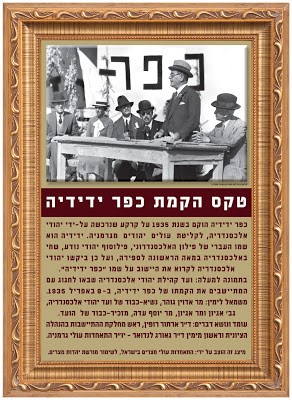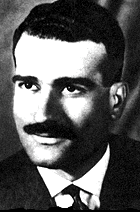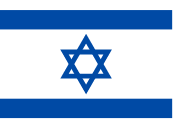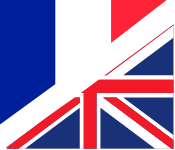TUESDAY, MAY 09, 2017
Egyptian Jews from Alexandria resettled refugees from Nazi Germany in Eretz-Israel in 1935
A three-day congress of the "Hitahdout Olei Mizrayim be-Israel" (Union des Juifs d'Egypte en Israel) closes with the commemoration of an unusual project, 82 years ago : a group of wealthy Egyptian Jews financed the resettlement of Jewish refugees from Nazi Germany in the Israeli moshav of Kfar Yedidia.

This Memorial Plaque will be unveiled in memory of the Jews of Alexandria who enabled refugees from Nazi Germany to be resettled at Moshav Kfar Yedidia. Photo taken on the day in 1935 that Moshav Yedidia, was inaugurated. On stage: the dignitaries Jews from Alexandria who came especially for the inauguration on April 1935 and Dr. Rupin welcoming them. From the left: Mr. and Mme. Aghion, Edwin Gohar and Joseph Adda, President of the Jewish Community Alexandria.
Today, Tuesday 9 May 2017, a memorial plaque will be unveiled at Moshav Kfar Yedidia in the beautiful Valley of Emek Hefer in Israel. The plaque will recall a remarkable event in April 1935, when Jews of Alexandria bought land here to resettle Jewish refugees from Nazi Germany. The land comprised 2,500 acres in central Israel, ten kilometres north/east of the coastal town Netanya. It was purchased for 13,000 Egyptian pounds ( then equal to 13,000 pounds Sterling) in order to absorb the Jewish refugees.
The moshav 'Yedidia' was named by the Jews from Alexandria after Philo the Alexandrian – whose Hebrew name was Yedidia. Philo was a well-known Jewish philosopher who lived in Alexandria during the first century AD.
'We are thrilled,' says Levana Zamir, President of the Association of Jews from Egypt in Israel, 'that just 82 years ago, on 8 April 1935, the moshav was established on the site where this memorial is being inaugurated.'
The Alexandrian Jewish leaders who feature in the memorial photograph were M. and Mme Aghion, Edwin Gohar and Joseph Adda. Their names are engraved on the plaque together with those of the then leaders of the Yishuv, Dr. Arthur Rupin and Dr. Georges Landauer.
The inauguration closes a three-day World Congress of Egyptian Jews held from 7- 9 May at Ramat Hagolan, Tiberias and Kfar Yedidia. The theme of the Congress, which attracted Jews from all over the world, is "50 years since the Six Day War, and its repercussions on the Jews of Egypt".
Among the academic speakers at this World Congress, chaired by Levana Zamir, were Dr. Esty Webman (Tel Aviv University) speaking about "The implications of the Six Day War on growing antisemitism in Egypt and the Arab world"; Dr. Edy Cohen (Bar-Ilan University) on the topic "Radio Berlin in Arabic - The influence of Nazi propaganda and the SS Officers in Egypt on Gamal Abdel Nasser's attitude toward the Jews"; Dr. Dario Miccoli (Venice University Ca Foscari) on " From Cairo to Jerusalem: Israeli writers of Egyptian origin".
Dr. Michele Baussant (The French National Institute of Scientific Research in Jerusalem) presented her research on "The Memories of Egyptian Jews in Israel from their country of birth, compared to the memories of those who settled in France"; and Ronit Marco from Haifa University, spoke about the digital archives project on the Jews of Egypt she is now creating alongside the Joe and Racheline Barda Chair for the Jews of Egypt Studies.
During this World Congress the participants told their own tragic 'Exodus from Egypt' stories, which have been recorded on video.
(Link): How a Jewish women's union in Port Said welcomed German-Jewish refugees
(With thanks: Desire) Posted by bataween at Tuesday, May 09, 2017
----------------------------------
THURSDAY, MAY 18, 2017
Egyptian Jews visit Golan memorials to Eli Cohen
With thanks: Levana
Fifty-two years to the day (on 18 May 1965), the Israeli spy Eli Cohen was hanged in Marjeh Square, Damascus, Syria.
He was only 40, and had left an anguished wife, Nadia, and three children back in Israel while he fulfilled his mission, penetrating the highest echelons of the Syrian regime. His body was
never returned to his family and his exact place of burial is unknown.

The intelligence that Cohen gathered in Syria between 1962-65 was probably the single most important factor in bringing about Israel's victory during the Six Day War. For instance, he collected intelligence on the Syrian fortifications there.
Feigning sympathy for the soldiers exposed to the sun, Cohen had trees planted at every position. The trees were used as targeting markers by the Israeli military during the war and enabled Israel to capture the Golan Heights in two days with relative ease.
The Association of Jews from Egypt dedicated the first day of their Congress last week to a tour of the Golan Heights in memory of the Egyptian-born spy of Aleppan origin who came to Israel in 1956. Delegates followed the Eli Cohen Route. There are seven monuments dedicated to him on the Golan Heights. The Heights were then in Syria and following the Six Day War were annexed by Israel.
Here and here are two 30-second videos of the Golan Heights tour.
More about Eli Cohen
 עברית
עברית
 56 Pinsker St., Tel Aviv - zip code 6356811
56 Pinsker St., Tel Aviv - zip code 6356811
 hitahdutoleimisrayim@gmail.com
hitahdutoleimisrayim@gmail.com

